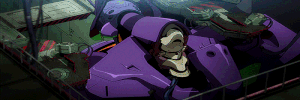>>14004
Harlock, Queen Millenia and the like weren't the first wave of mecha in either Japan or America. That'd be the likes of Tetsujin-28 and Mazinger Z in Japan, and America had Johnny Sokko and his Flying robot and Gigantor. Probably something earlier and a lot more shows too, but that's another topic really. Macross was the third or fourth "wave" in mecha in Japan, depending how you want to count the generations. Localising didn't kill these shows, just the opposite. These shows got a lot more exposure because they were dubbed and localised. Hell, you have a precedent with Godzilla and Godzilla: King of the Monsters. Godzilla did come to the US before it's localised version, and it did bad. After it was localised, it found much larger audience and became a huge cultural phenomena. Taking a work and altering it to be larger success takes money and time, and while it has become a negative term to certain groups on the Internet, the fact still is that without localisation we would not enjoy anime or anything else from other cultures the way we do nowadays.
The exact same goes for Robotech. Yes, it was mashed with two other shows, and yet it was ground breaking at the time. It's easy to point and laugh at Robotech thirty years later as a purist, yet everybody forgets that Harmony Gold wanted to keep the level of sophistication found in Macross with their localisation, which they did in most cases, despite the alterations. There was a very small cult following for japanimation at the time, and Robotech kicked the fandom to high gear.
And no, Macross, Mospeada and Southern Cross didn't become a generational story in Robotech because of lack of episodes needed for a season. They became that because Harmony Gold didn't want to go the home release way and opted for syndication, and there is a needed amount of episodes needed for a show to be syndicated, which has nothing to do with episode count in a season if the show is not running in syndication.
Just like with Voltron that came year before Robotech, localised changes like this, especially at the time, were made out of appreciation for the original work and intention to have it the largest possible audience out there. Now you just have dubs and it's very rare to see anyone to actually localise works. Games are less localised in the same sense as Gigantor, Voltron and Robotech were, and are more censored with tweaks done to them.
As a fellow Eurofag, I can straight up tell you to shove your shit transliteration of Bismarck and call it with its official rominization. Saying that Germany got a better start with mecha than US is just laughable, you got a different start. Bismarck is a footnote at best in mecha history alongside the rest of dime in the dozen 1980's mecha shows like Dorvack, but at least you didn't start with the likes of Balatack and Starzinger, like the Sweden and Finland did.
But as said, mecha is mostly unpopular now because tastes change with time. We don't live in a technological age of marvels anymore, and even the highest piece of tech is mundane. Nobody bats an eye at the latest smartphone despite it being an insane achievement in tech in many ways. We don't reach to the stars anymore, instead we're more about the Internet and how we miniaturise things. Terminator is a good example of this, how Skynet changed with Genisys. Mecha has become part of adults' childhood, and as children want to stand apart from their parents, things like Youkai Watch have become immensely popular in Japan to the point of trumping over Pokémon. Japanese kids absolutely love Youkai Watch, and think that mecha are for old men. This is reflected with only a handful of mecha shows being targeted for kids, like Super Sentai, and vast majority are being aimed at adults.
Three decades of pumping out of mecha has made Japan tired, and the exact same goes for the west. It's simple as that, really. Giant robots had their fad, hit the cultural scene and were replaced with something new when it grew old and tired. Mecha isn't the best genre out there for mass consumption, as most shows are either toy commercials, war stories or something else generic as hell. We haven't seen any innovative mecha game, anime, movie or anything like that since Evangelion, and even that is debated. Nevertheless, Evangelion's popularity and how it's overall seen as the one that stands out of everything else really tells you a lot. Gundams, Valkyries, Braves or Transformers, those the same gray shit to the general public, but an EVA stands out. When people remember either Optimus Prime, some weird purple robot with green stripes or whatever the latest blockbuster movie has, it tells that the genre itself doesn't have a lasting effect and will remain a niche until the overall cultural surroundings begin to support technology and mechanical developments further, which is not happening anytime in the near future.
